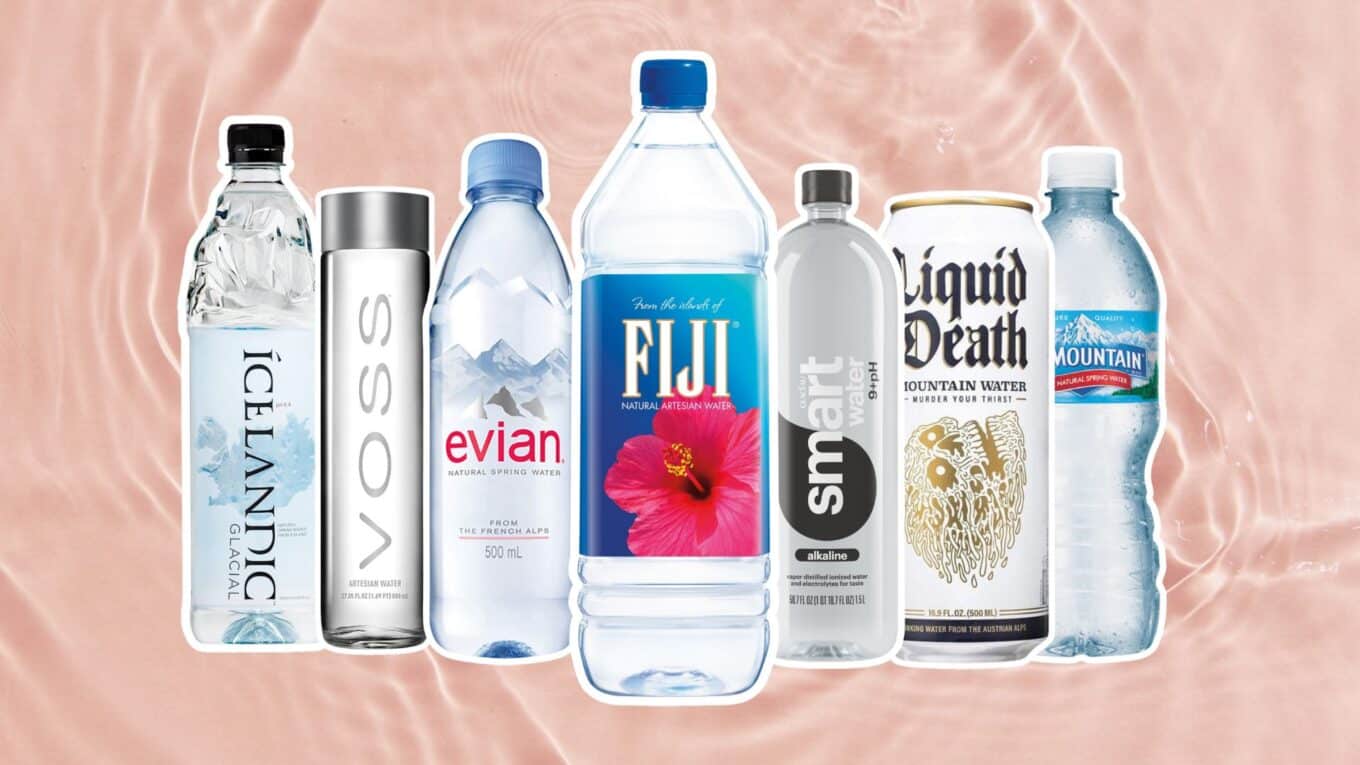Are you curious whether Fiji Water lives up to its premium reputation and is truly good for your health?
With so many bottled water brands vying for your attention, it can be challenging to determine which one offers the best hydration and wellness benefits.
While Fiji Water markets itself as a pristine, natural source of hydration, it’s essential to dive deeper into its composition and compare it with other popular brands to make an informed decision.
This article will closely examine Fiji Water’s mineral content, pH level, and other key factors contributing to its overall healthiness.
We’ll also compare it to other well-known brands to help you understand which bottled water options genuinely prioritize your well-being.
Join us as we uncover the truth behind Fiji Water and discover if it’s the right choice for your health-conscious lifestyle.
Fiji Water: A Detailed Analysis
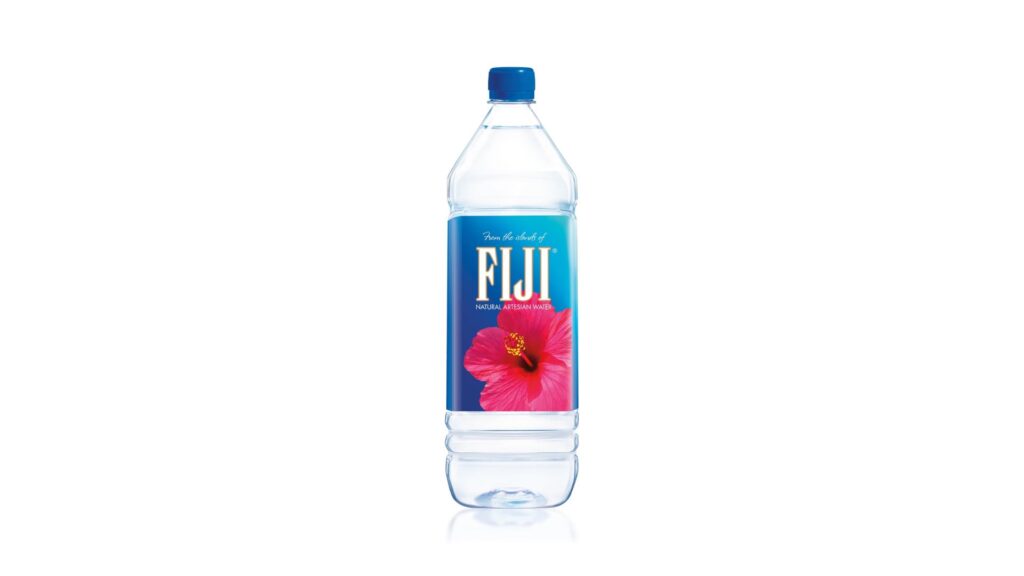
Fiji Water, sourced from an artesian aquifer in Fiji, is unique in its origin and mineral composition.
The water is drawn from an underground aquifer in the remote Yaqara Valley of Viti Levu, Fiji, and naturally filtered through layers of volcanic rock.
Fiji Water contains significant levels of silica, calcium, and magnesium.
Silica contributes to a smooth mouthfeel, while calcium and magnesium support bone health and metabolic functions.
Health Benefits of Fiji Water
Fiji Water’s health benefits are attributed to its mineral content and natural alkalinity.
Silica promotes healthy skin, hair, and nails, while calcium and magnesium are essential for bone health and metabolic functions.
Fiji Water provides a source of essential minerals that can complement a balanced diet.
Consuming water with natural minerals can contribute to overall well-being.
Purity and Safety of Fiji Water
Fiji Water undergoes rigorous filtration and testing to ensure purity and safety.
The water is filtered naturally through volcanic rock, and additional filtration methods, such as microfiltration and ultraviolet light, are used to eliminate impurities.
Fiji Water is regularly tested to meet international quality standards.
The brand adheres to stringent safety regulations to ensure the water is free from contaminants, providing consumers with a clean and reliable source of hydration.
Comparative Analysis of Fiji with Other Brands
1. Smartwater

Smartwater is vapor-distilled and enhanced with added electrolytes.
The vapor-distillation process mimics the hydrologic cycle, producing a clean and crisp taste.
The added electrolytes promote rehydration.
Compared to Fiji Water, Smartwater has a lower natural mineral content and focuses on added electrolytes for taste enhancement.
2. Evian
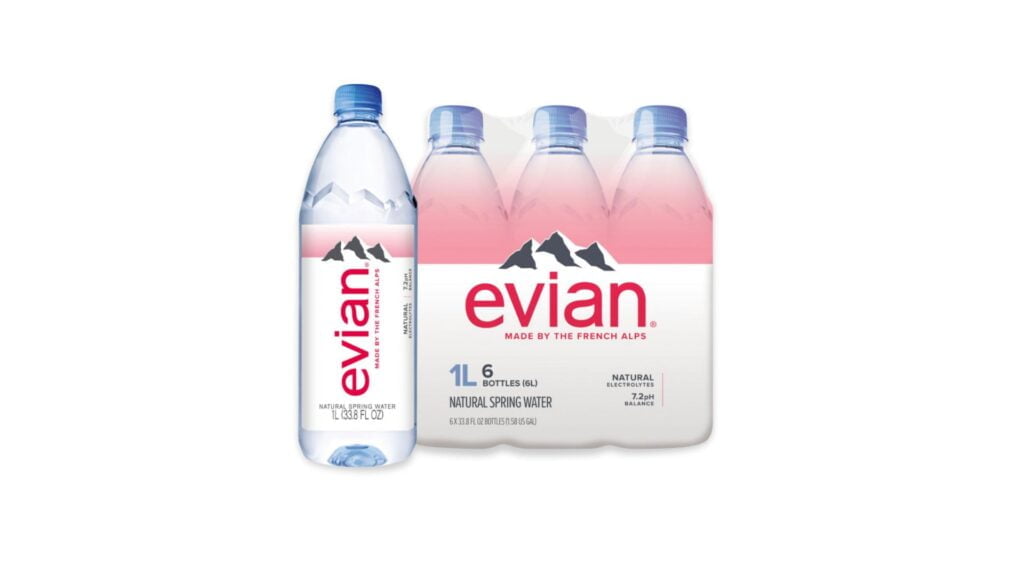
Evian is sourced from the French Alps and contains naturally occurring electrolytes.
The water is naturally filtered through glacial sand, producing high calcium, magnesium, and potassium content.
These minerals support pH balance, metabolic function, and hydration.
Compared to Fiji Water, Evian has a different mineral profile and a higher sodium content, which may not be suitable for everyone.
3. Voss
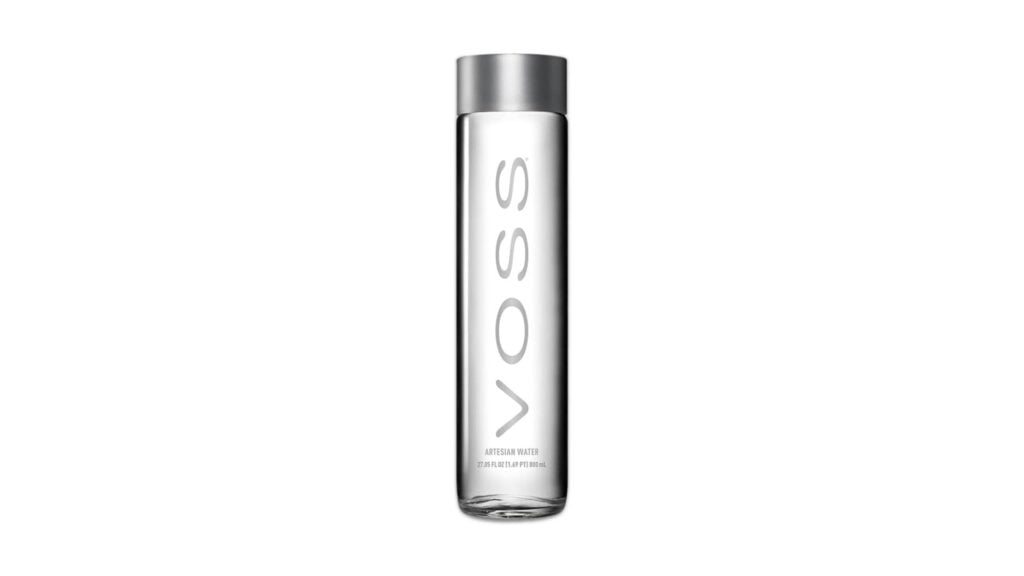
Voss offers high purity with low mineral content and is sourced from Southern Norway.
The water comes from artesian sources and has a low Total Dissolved Solids (TDS) content, indicating its purity.
Voss is ideal for those seeking pure, neutral-tasting water.
Compared to Fiji Water, Voss is less mineral-rich and focuses on purity and a neutral taste.
4. Ice Mountain
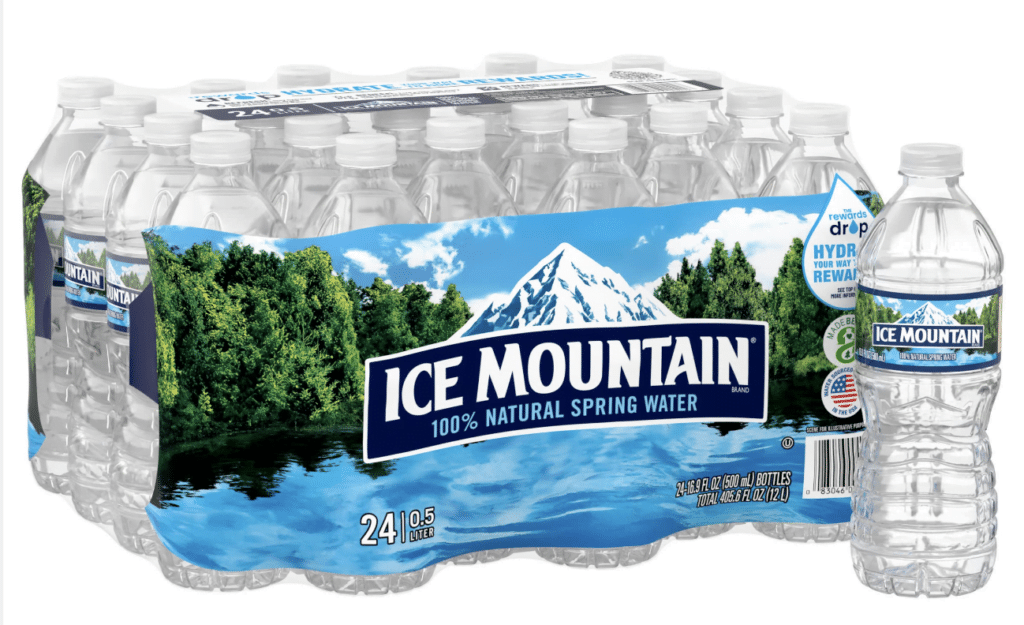
Ice Mountain provides affordable hydration with moderate mineral content.
Ice Mountain is sourced from various springs in the Midwest USA and offers balanced hydration with moderate minerals.
It is an affordable, clean-tasting water suitable for daily use.
Compared to Fiji Water, Ice Mountain is more budget-friendly and has a less exotic source but still offers reliable quality.
5. Icelandic Glacial Water
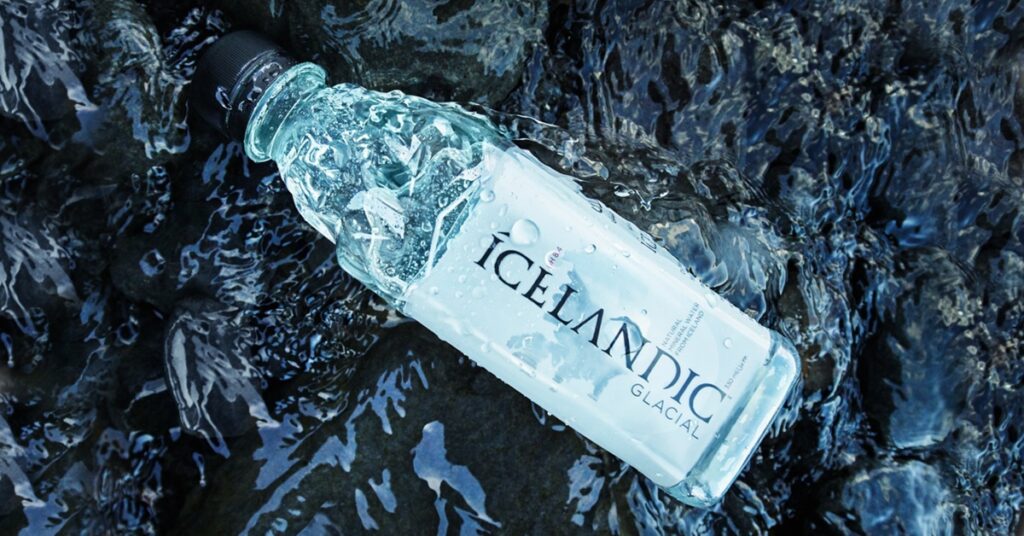
Icelandic Glacial Water is naturally alkaline, offering a high pH level.
Sourced from the Olfus spring in Iceland, this water has a high pH and alkaline properties.
It is good for hydration and pH balance and is naturally sourced.
Compared to Fiji Water, Icelandic Glacial Water has a similar natural sourcing but a different mineral composition focusing on alkalinity.
6. Liquid Death
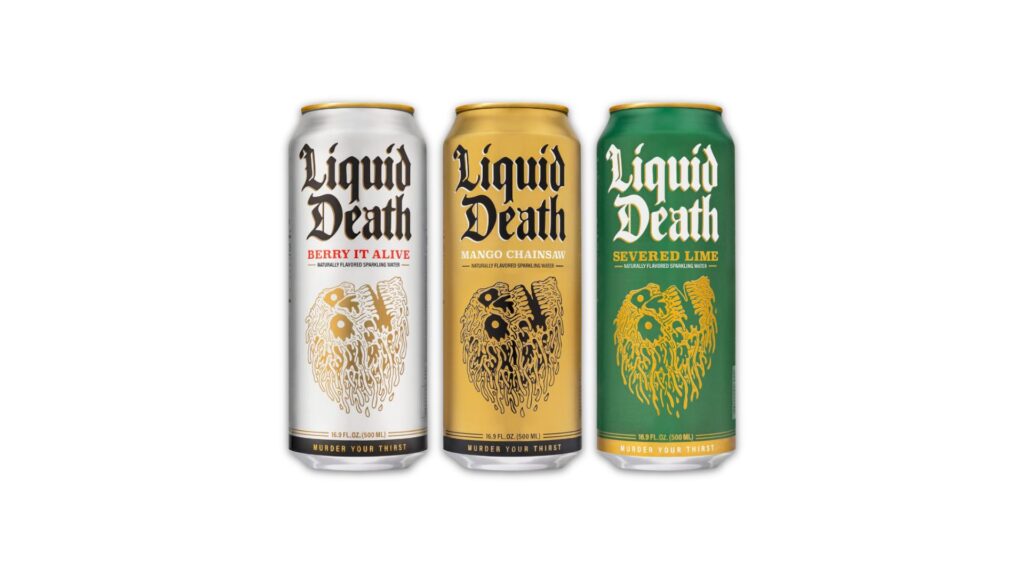
Liquid Death uses unique packaging and provides high TDS and alkaline water.
Sourced from an underground mountain spring, Liquid Death is purified with a carbon filter and UV disinfection.
It offers alkaline properties and a high TDS content for taste and hydration.
Compared to Fiji Water, Liquid Death has a unique branding and packaging approach and a different purification process.
Other Significant Comparison Factors
| Factor | Fiji Water | Smartwater | Evian | Voss | Ice Mountain | Icelandic Glacial Water | Liquid Death |
|---|---|---|---|---|---|---|---|
| Source | Artesian aquifer in Fiji Islands | Vapor distilled from municipal sources | French Alps | Artesian sources in Southern Norway | Various springs in the Midwest USA | Olfus Spring in Iceland | Underground mountain spring |
| Mineral Content | High in silica, calcium, magnesium | Low natural minerals, added electrolytes | High in calcium, magnesium, potassium | Low Total Dissolved Solids (TDS) | Moderate mineral content | Naturally high pH, alkaline | High TDS, alkaline |
| Taste Profile | Silky, smooth | Clean and crisp | Soft and balanced | Pure and neutral | Clean and refreshing | Naturally crisp and alkaline | Crisp, high mineral content |
| Packaging and Design | Iconic square bottle, plastic | Sleek, ergonomic design, plastic | Traditional round bottles, plastic, and glass | Cylindrical bottles, glass, and plastic | Standard bottle design, plastic | Sleek design, plastic | Unique branding, aluminum cans |
| Brand Reputation | Premium image, celebrity endorsements | Endorsed by athletes, it focuses on purity | Luxurious, associated with health and wellness | High-end, sophisticated brand | Reliable, everyday water | Eco-friendly, pure | Edgy, environmentally conscious |
| Availability | Widely available in premium retailers | Easily accessible in many stores | Found in premium markets, widely distributed | Available in upscale stores and restaurants | Common in the Midwest USA | Available in health-focused stores | Growing availability, strong online presence |
| Environmental Impact | High due to long transportation routes | Local sourcing in some regions | Working towards sustainability and still has a transportation impact | Glass bottles reduce plastic use and increase weight | Regional sourcing reduces the transportation footprint | Naturally sourced, it focuses on low-impact | Aluminum cans are more recyclable but have a footprint |
| Sustainability Initiatives | Transitioning to recycled plastic (rPET) | Exploring sustainable packaging options | Commitment to 100% recycled plastic by 2025 | Uses reusable glass bottles | Emphasizes local sourcing | Carbon neutral certification | Markets sustainability, uses aluminum cans |
| Cost | Premium pricing | Mid-range pricing | Premium pricing | High-end pricing | Budget-friendly | Premium pricing | Competitive Pricing |
Consumer Preferences and Trends
There is an increasing demand for high-quality and natural water sources.
Consumers prefer exotic sources like Fiji Water and Icelandic Glacial Water.
There is a growing interest in natural minerals and alkaline properties.
Consumers are prioritizing eco-friendly options.
There is a preference for brands with strong sustainability commitments. Interest in recyclable and reusable packaging is growing.
Brands are positioned to appeal to different segments.
Fiji Water targets the premium segment with a focus on health and luxury. Smartwater appeals to the health-conscious, mid-range market.
Evian is positioned as luxurious and health-focused. Voss targets the high-end, sophisticated consumer.
Ice Mountain is positioned as a budget option with reliable quality.
Icelandic Glacial Water targets the premium, eco-friendly segment, while Liquid Death appeals to those seeking a unique and environmentally conscious brand.
Conclusion
Many factors must be considered when evaluating Fiji Water’s health benefits and overall appeal compared to other popular bottled water brands.
Each brand offers unique characteristics catering to consumer preferences, from mineral content and pH levels to taste profiles and packaging.
Ultimately, the choice of bottled water depends on individual priorities, whether it’s exceptional taste, environmental sustainability, or specific health benefits.
As consumers become increasingly health-conscious and environmentally aware, staying informed about the various options available in the bottled water market is crucial.
By understanding each brand’s unique selling points and potential drawbacks, you can make an informed decision that aligns with your values and hydration needs.
So, which bottled water will you choose to quench your thirst and support your wellness goals?
Consider the factors discussed in this article, and don’t forget to prioritize your health and the planet in your decision-making process.

